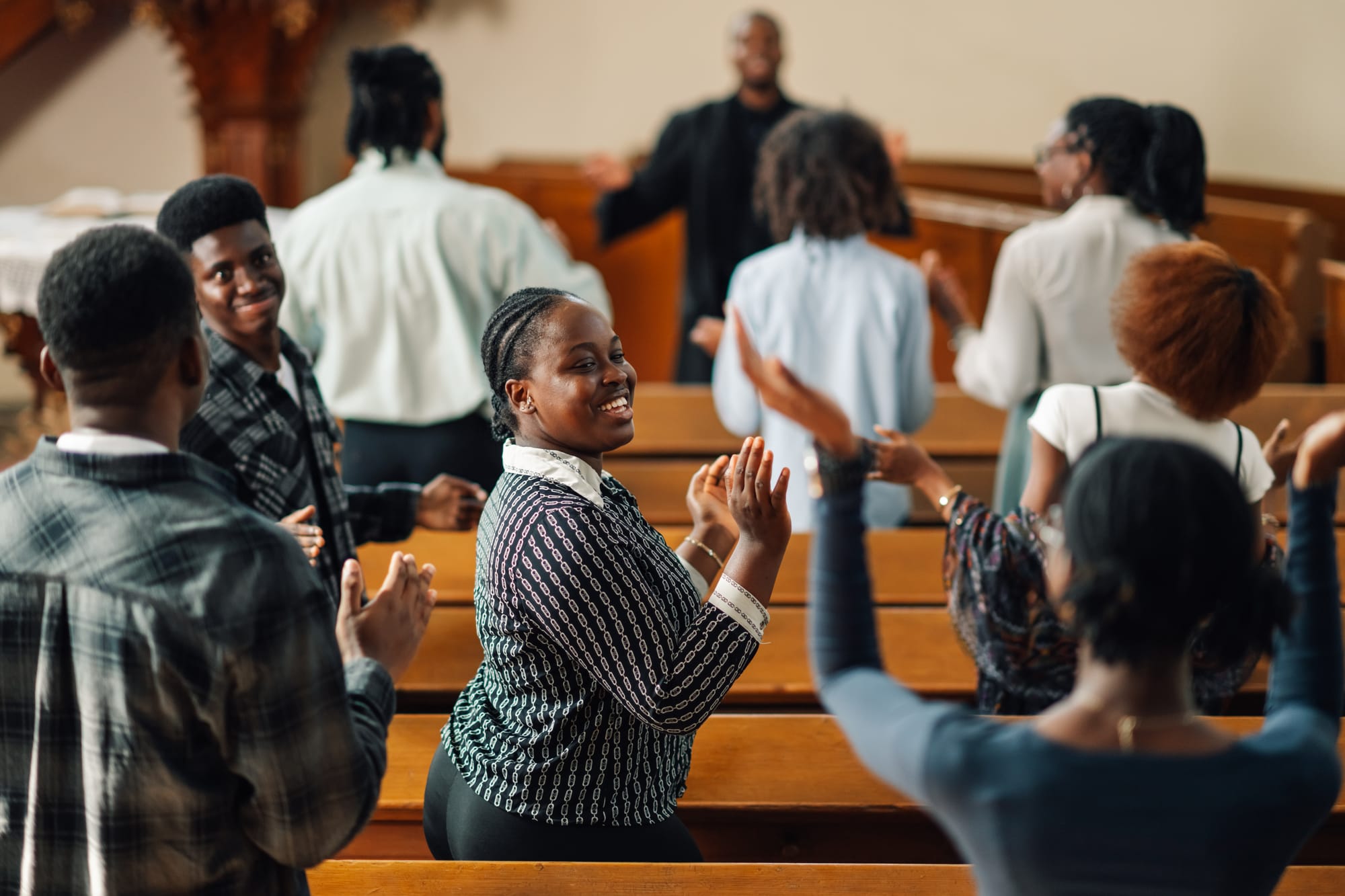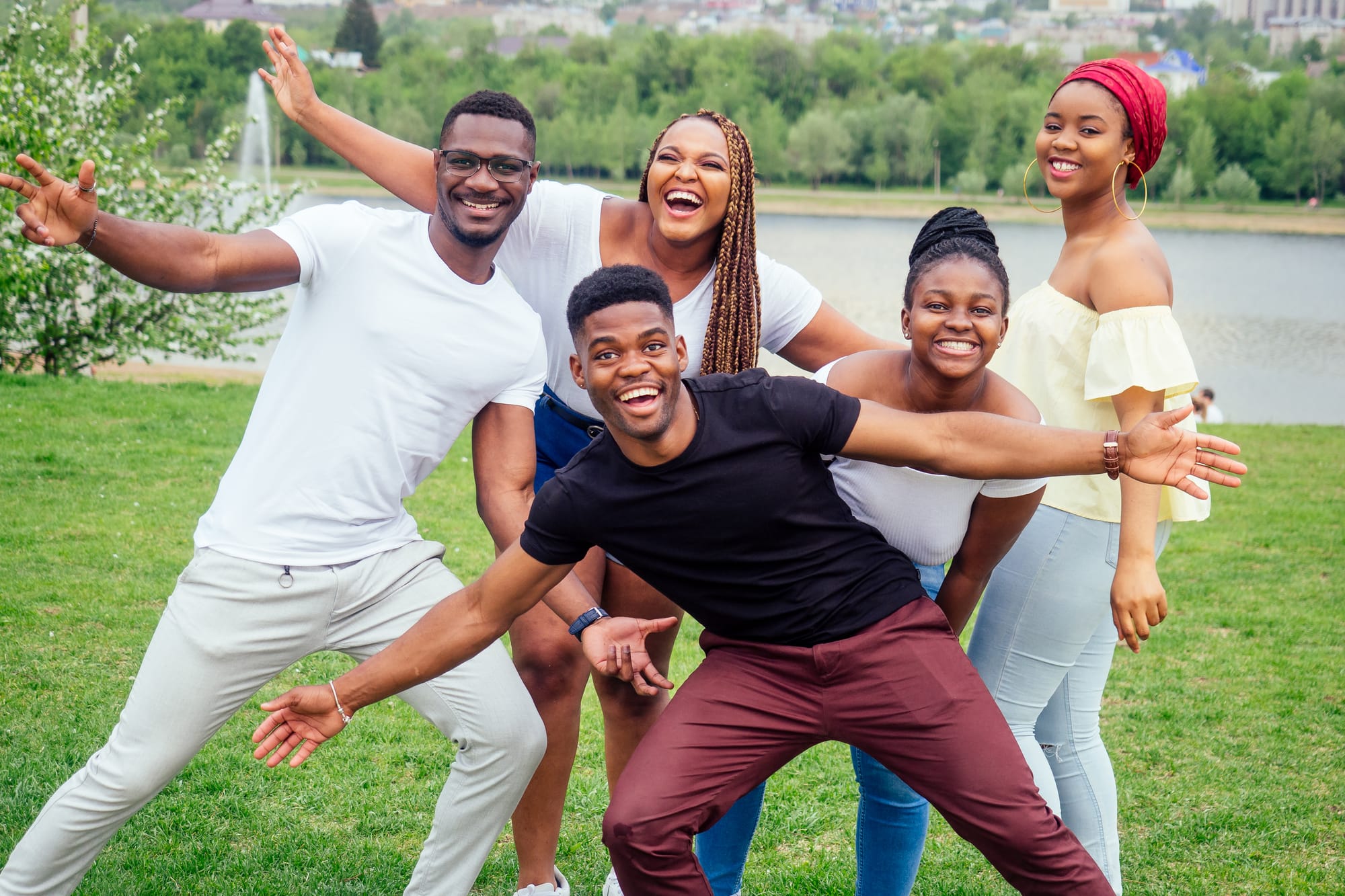Finding Your Community: How Nigerians in Canada Make Friends and Connect

Introduction
Let’s be real — moving to a new country is exciting… until it’s not. The thrill of fresh air, clean streets, and maybe even snow for the first time can quickly wear off when you're sitting alone in your apartment, staring at a bowl of cold noodles, wondering who to gist with.

For many Nigerians who move to Canada, that feeling hits hard. Many people bottle this up but some literally cry out for help on the world wide social media.
Yes, you're travelling for big dreams — school, work, a better life, but nobody tells you just how lonely it can get. Back home, you could hear a neighbour’s generator humming, smell suya from down the street, or simply walk outside and see someone you know. Suddenly, all that vanishes, and the silence becomes loud.
Just ask Sola. After three long years of hustling to get into a master’s program, she finally made it to Canada, determined to face her studies. “I knew having a community was important,” she says, “but I didn’t think it was that important. I figured, I’m grown. I can handle myself.”
Well, let’s just say, it didn’t take long for her to realize the cold in Canada isn’t just physical but that it can be social and emotional too.
Finding a community abroad isn’t luxury; it’s a lifeline. It’s what turns a house into a home and a cold city into a cold city with warm memories. For so many Nigerians in Canada, finding their people has made all the difference, from just surviving to truly thriving.

So, how do you find your own tribe? How do you make friends, build support, and feel seen in Canada as a Nigerian who has just moved for school, work or life? We spoke to Nigerians across Canada to share their stories — so you can learn from their lessons and avoid some of their mistakes. Just before we begin, if you're in Canada and looking for a fast seamless way to send money to Nigeria at great rates, you need to try out Zole.

Don’t be afraid to take the First Step: Just Say Hello
For Tolu Adebayo, a 26-year-old student in Ottawa, making friends was about taking the first step. "I landed at Pearson Airport, clutching my bags and wondering what the future held. That’s when I spotted another Nigerian waiting for a ride. All I said was, 'Hi, I’m Tolu,' and before I knew it, we were talking about everything. That was four years ago, and we’ve been best friends since then."

But not everyone finds it easy to say take such bold step. Chika Okoye, 28, a software developer in Toronto, struggled at first. "You don’t realize what you have in Nigeria until you don’t have it anymore. People here just mind their business." Her breakthrough came when she decided to look for a church with a Nigerian congregation. "The first church didn’t feel right, so I tried another one. After service, I introduced myself to a few people, and that simple act opened doors. Soon enough, I was part of a group that organized potlucks and game nights."
Lesson: Take the initiative. Whether it’s saying hi to a stranger or introducing yourself after a church service, those small moments can lead to lifelong friendships.
Finding Familiar Spaces: Churches, Associations, and Events
Places of worship often become community hubs. Bolu Adebayo, a nurse in Calgary, found her people through her church. "I was welcomed like a long-lost cousin. After service, we shared puff-puff and swapped survival tips."

Cultural associations like the Nigerian Canadian Association (NCA) also host regular events, from Independence Day celebrations to jollof rice cook-offs. These gatherings are perfect for meeting people who understand your jokes and know the difference between ijebu garri and regular garri.
Lesson: Seek out Nigerian churches, mosques, or community associations. They’re great places to find people who understand your culture.
Social Media: Your Shortcut to Community
Adeola Yusuf, 35, a nurse in Calgary, found her community online. "Before I moved, I joined a Facebook group called 'Nigerian Canadian Association of Calgary.' I asked for advice about settling in, and within days, people were inviting me out for coffee and Nigerian jollof nights. It felt like I already had a small community waiting for me."

She adds, "Some people come here and they’re too rigid. They’re scared to mix or reach out. But I always say, once you’ve crossed the Atlantic, few things should scare you anymore. Be open to starting conversations — you never know who might become your new best friend."
Lesson: Social media isn’t just for scrolling. Join Nigerian groups online before you even arrive.
Prioritizing Survival: It’s Not Always About Friends
Bisi Adeniran, 32, an accountant in Edmonton, puts it bluntly: "When you land, the first thing on your mind is survival. You’re thinking about rent, bills, work, school — not making friends. For my first year, I was either working or studying. There was no time for socializing."
And that’s okay. Survival comes first. But even in those busy seasons, small efforts can plant the seeds of friendship.
Lesson: Don’t beat yourself up if making friends isn’t immediate. Focus on stability, and let friendships build naturally.
Family Life: Building a Support System
For families, the journey comes with unique challenges. The Okparas, a young family in Winnipeg, shared their story. "When we moved, our priority was settling the kids into school and finding work. Socializing felt like a luxury," says Ijeoma Okpara, 38, a teacher. It was through her children’s school that she met other Nigerian parents. "One day, at a school event, I overheard Yoruba being spoken and couldn’t resist introducing myself. That moment sparked friendships that have become a vital support system for our family."


Lesson: If you have kids, get involved at their school. You might meet fellow Nigerian parents who become your new family.
Facing Challenges Together: Navigating Racism
Unfortunately, the journey isn’t always smooth. Samuel Adeyemi, 29, an engineer in Montreal, recounts his first few months: "There were times I felt invisible. In stores, I’d be ignored while others got served. Once, at work, someone joked about my accent. It stung, but talking to other Nigerians helped me process these experiences and find strength."
Lesson: Lean on your community during tough times. Shared experiences create bonds of understanding and support.
Staying Connected: Beyond Friendships
Kunle Bamidele, 27, a student in Vancouver, kept his spirits up by staying connected with friends back home. "The time zone was a problem, and school kept me busy, but we found time for voice notes and video calls. Apps like Zole made it easier to stay connected."

Lesson: Technology isn’t just about sending money home — it helps keep those precious connections alive.
Tips for Building Your Community:
- Join Nigerian Groups: Look for Nigerian forums, both online and offline.
- Attend Cultural Events: From Independence Day celebrations to food festivals, these events are perfect for meeting people.
- Be Open: Don’t be afraid to introduce yourself. Every friend started as a stranger.
- Use Technology: Join WhatsApp groups, follow Nigerian community pages, and use apps like Zole to connect.
- Give It Time: Building meaningful connections takes time. Be patient and enjoy the process.
Conclusion: Community Helps You to Thrive

Moving to Canada as a Nigerian can be tough, but you don’t have to go through it alone. Community isn’t just about companionship — it’s a survival tool. It saves you money, time, and mistakes. More importantly, it saves you from the kind of loneliness that sneaks up when you least expect it.
So take that first step. Say hello. Join that group. Attend that event. Your home away from home is waiting.

Comments ()